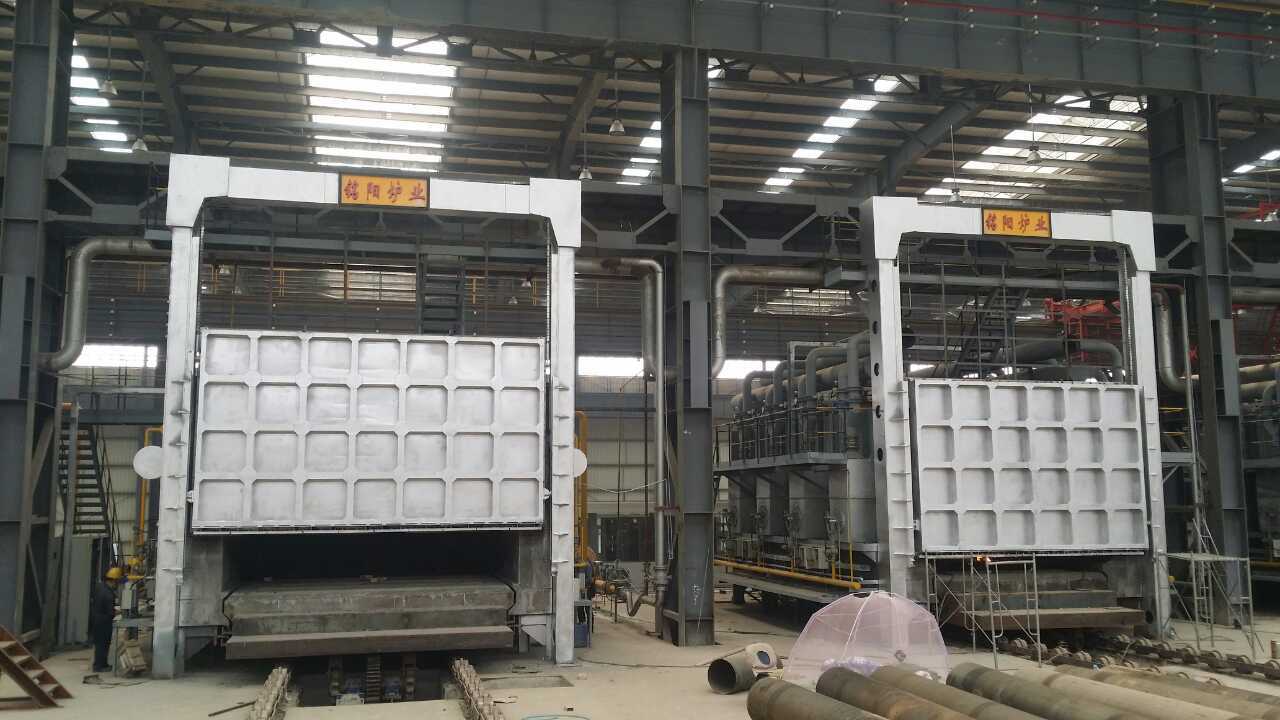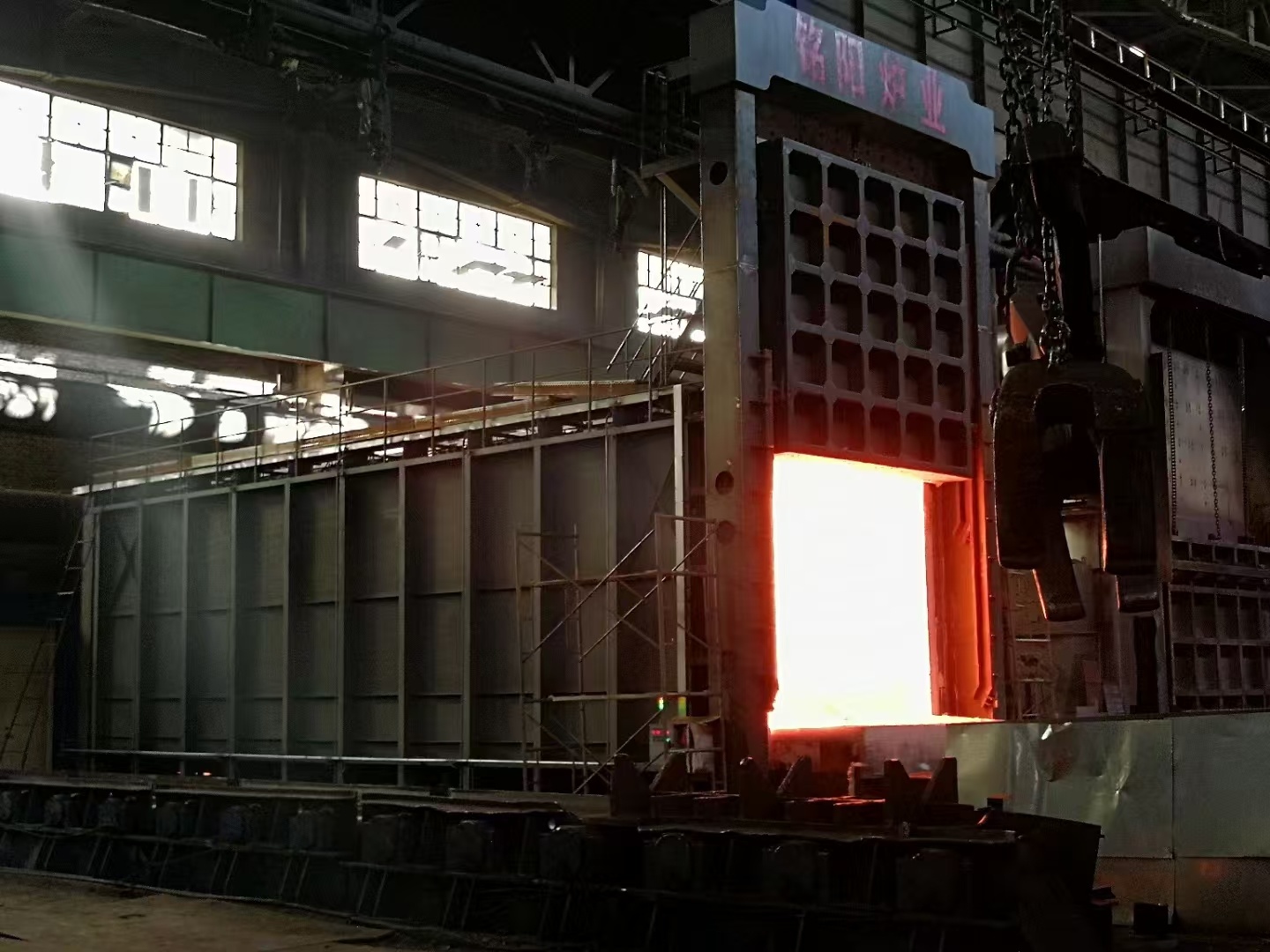


Transform Your Heating Process with Advanced Electric Furnaces Featuring Silicon Carbide Heating
Transform Your Heating Process with Advanced Electric Furnaces Featuring Silicon Carbide Heating
Table of Contents
1. Introduction to Electric Furnaces and Silicon Carbide Heating
2. Key Benefits of Silicon Carbide Electric Furnaces
3. Understanding Silicon Carbide Technology
4. Applications of Silicon Carbide Electric Furnaces in Various Industries
5. Silicon Carbide vs. Trad
Transform Your Heating Process with Advanced Electric Furnaces Featuring Silicon Carbide Heating
Table of Contents
- 1. Introduction to Electric Furnaces and Silicon Carbide Heating
- 2. Key Benefits of Silicon Carbide Electric Furnaces
- 3. Understanding Silicon Carbide Technology
- 4. Applications of Silicon Carbide Electric Furnaces in Various Industries
- 5. Silicon Carbide vs. Traditional Heating Elements
- 6. Enhancing Energy Efficiency with Advanced Heating Solutions
- 7. Cost Considerations and Return on Investment
- 8. Frequently Asked Questions
- 9. Conclusion
1. Introduction to Electric Furnaces and Silicon Carbide Heating
In the realm of industrial heating, **electric furnaces** have emerged as a reliable and efficient option, widely utilized across various sectors. The incorporation of **Silicon Carbide (SiC) heating elements** into electric furnaces represents a significant advancement in heating technology. This innovative approach not only improves heating efficiency but also enhances the operational lifespan of the furnaces.
Silicon Carbide is a semiconductor material known for its exceptional thermal conductivity and durability. As industries continue to seek more efficient and eco-friendly heating solutions, SiC electric furnaces are becoming increasingly popular. In this article, we will explore how these advanced heating technologies can transform your heating processes, making them more efficient and reliable.
2. Key Benefits of Silicon Carbide Electric Furnaces
When considering an upgrade to **Silicon Carbide electric furnaces**, it is essential to understand the myriad of benefits they offer:
2.1 Enhanced Energy Efficiency
SiC heating elements provide superior energy efficiency compared to traditional materials. This means lower energy consumption, which translates to cost savings in the long term.
2.2 Faster Heating Times
Electric furnaces employing SiC technology have the capability to reach operating temperatures more quickly, thereby increasing productivity and reducing downtime.
2.3 Improved Temperature Uniformity
SiC heating elements deliver consistent and uniform heat distribution. This is critical in processes where temperature control is paramount.
2.4 Longer Lifespan and Reduced Maintenance
Silicon Carbide is known for its durability and resistance to thermal shock. Consequently, furnaces utilizing this technology require less frequent replacements, resulting in reduced maintenance costs.
2.5 Environmentally Friendly Operations
The improved energy efficiency of SiC electric furnaces not only reduces operational costs but also contributes to lower carbon emissions, making them a more sustainable choice.
3. Understanding Silicon Carbide Technology
Silicon Carbide is a compound of silicon and carbon, known for its remarkable physical and chemical properties. It has unique attributes that make it particularly well-suited for heating applications:
3.1 High Thermal Conductivity
SiC exhibits excellent thermal conductivity, allowing for rapid heat transfer and efficient energy use within the furnace.
3.2 High-Temperature Resistance
SiC can withstand extremely high temperatures, making it ideal for applications that require sustained high-heat operations without compromising the integrity of the heating element.
3.3 Compatibility with Various Atmospheres
Silicon Carbide is chemically stable in various environments, including oxidizing and reducing atmospheres, which is crucial for many industrial processes.
4. Applications of Silicon Carbide Electric Furnaces in Various Industries
Silicon Carbide electric furnaces find applications across numerous industries, showcasing their versatility:
4.1 Metallurgy
In metallurgy, SiC electric furnaces are used for melting and heat treatment processes, providing precise temperature control and high efficiency.
4.2 Ceramics and Glass Manufacturing
The ceramics and glass industries benefit from the uniform heating provided by SiC technology, ensuring consistent quality and minimizing defects.
4.4 Semiconductor Manufacturing
The semiconductor industry utilizes SiC furnaces for processes requiring high temperatures and controlled atmospheres, ensuring optimal product quality.
4.5 Aerospace and Defense
SiC electric furnaces are employed in the aerospace sector for the processing of advanced materials, where precision and reliability are crucial.
5. Silicon Carbide vs. Traditional Heating Elements
When comparing **Silicon Carbide heating elements** with traditional heating materials such as silicon or metal:
5.1 Temperature Range
Silicon Carbide can operate at higher temperatures than traditional materials, making it suitable for a broader range of applications.
5.2 Energy Consumption
SiC elements are typically more energy-efficient, resulting in lower operational costs.
5.3 Performance Longevity
While traditional heating elements may require frequent replacements, SiC heaters exhibit longer operational lifespans, reducing long-term costs.
6. Enhancing Energy Efficiency with Advanced Heating Solutions
The push for energy efficiency in industrial processes has never been more critical. By integrating **Silicon Carbide electric furnaces** into your operations, you can achieve:
6.1 Reduced Energy Costs
The energy savings associated with SiC technology can lead to substantial reductions in energy bills, directly impacting the bottom line.
6.2 Innovative Control Systems
Modern SiC electric furnaces often feature advanced control systems that allow for precise monitoring and adjustment of heating parameters, further enhancing efficiency.
6.3 Sustainability Goals
Utilizing SiC technology aligns with sustainability initiatives, promoting eco-friendly practices and reducing carbon footprints.
7. Cost Considerations and Return on Investment
Investing in **Silicon Carbide electric furnaces** involves initial costs that can be offset by long-term savings. Consider the following:
7.1 Initial Investment
While the upfront costs may be higher than traditional systems, the advantages in energy savings and reduced maintenance can yield a positive return on investment over time.
7.2 Total Cost of Ownership
Evaluating the total cost of ownership, including energy consumption, maintenance, and replacement, is crucial for understanding the long-term financial benefits of adopting SiC technology.
7.3 Financing Options
Many suppliers offer financing options or leasing arrangements that can help mitigate initial investment concerns, making advanced heating solutions more accessible.
8. Frequently Asked Questions
8.1 What industries benefit from Silicon Carbide electric furnaces?
Silicon Carbide electric furnaces are widely used in industries such as metallurgy, ceramics, glass manufacturing, semiconductor production, and aerospace.
8.2 How do SiC heating elements improve energy efficiency?
SiC elements provide rapid heating, consistent temperature control, and reduced energy consumption, leading to overall improved efficiency.
8.3 What is the lifespan of Silicon Carbide heating elements?
SiC heating elements typically have a longer lifespan than traditional materials, often reducing the frequency of replacements.
8.4 Can SiC electric furnaces operate in different atmospheres?
Yes, Silicon Carbide is chemically stable in both oxidizing and reducing environments, making it suitable for a variety of applications.
8.5 What should I consider when upgrading to a Silicon Carbide electric furnace?
Consider factors such as initial investment, energy savings, maintenance costs, and the specific heating requirements of your application.
9. Conclusion
In conclusion, adopting **advanced electric furnaces featuring Silicon Carbide heating technology** can revolutionize your industrial heating processes. With benefits such as enhanced energy efficiency, faster heating times, and improved temperature uniformity, these furnaces present a compelling solution for various industries. The long-term savings, reduced maintenance, and alignment with sustainability goals further solidify the case for making the switch. Investing in Silicon Carbide electric furnaces is not just a technological upgrade, but a strategic move towards a more efficient, cost-effective, and environmentally conscious future.


